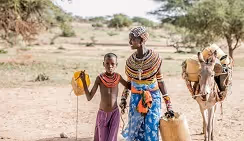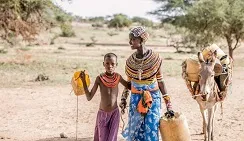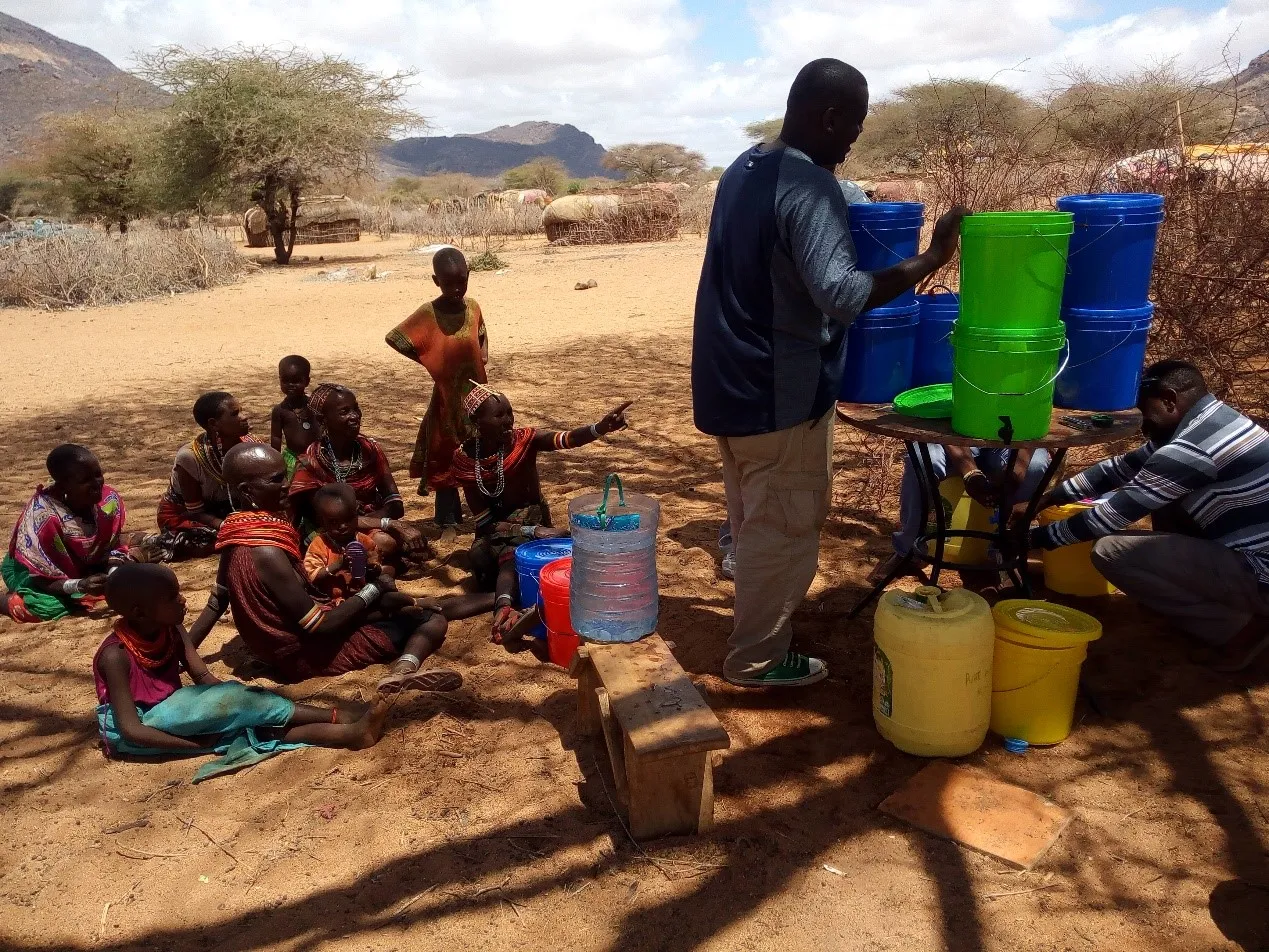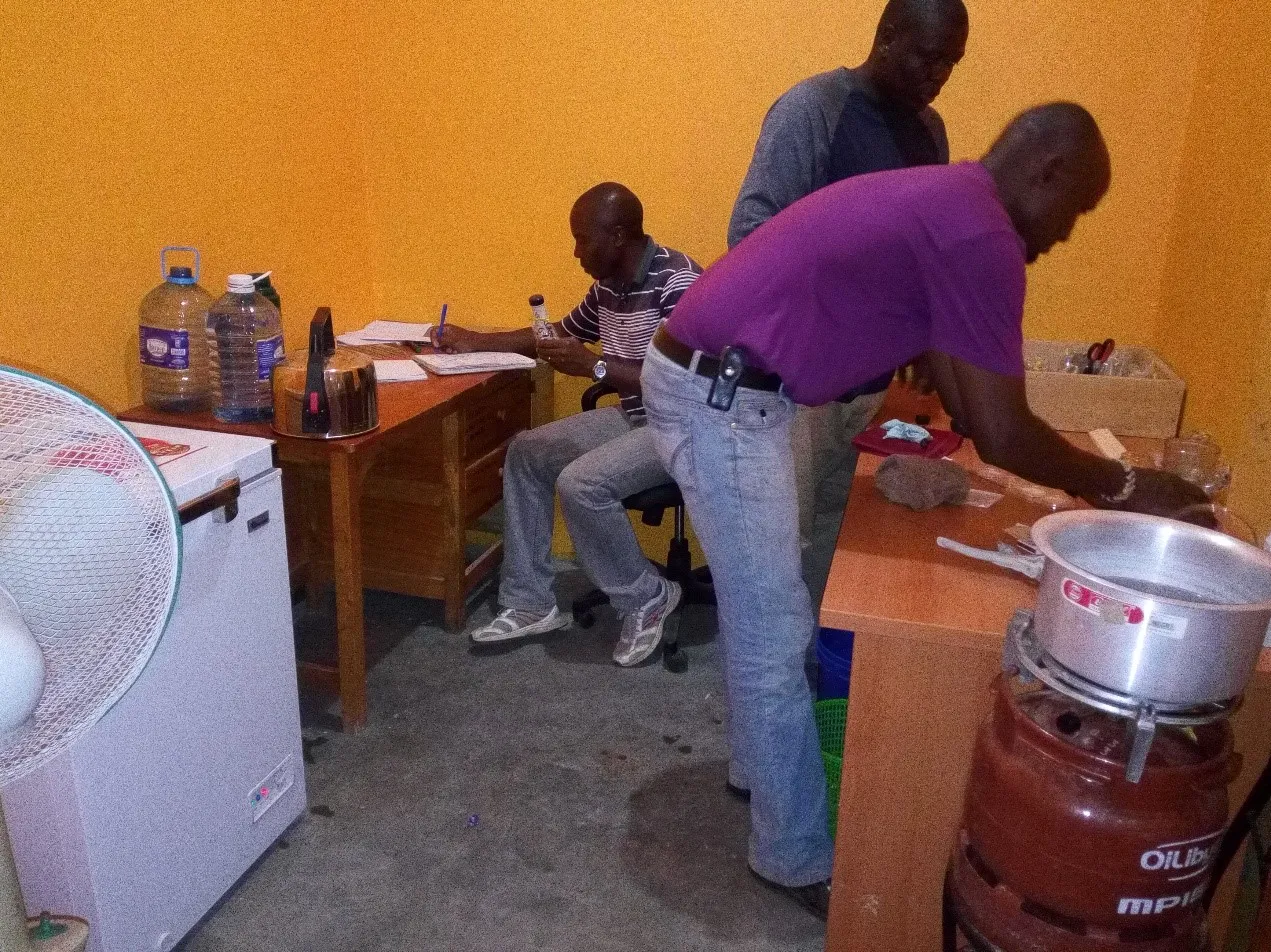Water filters between droughts and floods in Northern Kenya

Kenya consists mostly of dryland areas. The county of Marsabit in Northern Kenya is one of 27 counties classified as arid or semi-arid. There are no permanent rivers in Marsabit county. Human settlements are concentrated around mountain areas or around water points such as boreholes, shallow wells and earth dams in the low-lying areas. Only one third of the population has access to safe water.
Due to its arid climate, Marsabit experiences droughts frequently. The patterns of drought however have changed drastically over the last decade. With more frequent occurrences and aggravated by environmental degradation, the droughts lead, at times, to over half of the population depending on relief food. In 2015/2016, a strong El-Niño phenomenon, followed by La-Niña, occurred in the Horn of Africa. Since then, Marsabit county has experienced below-average rainfall for three consecutive rainy seasons.

Most residents of the county are pastoralists who depend directly on products from their livestock such as meat, milk, skins, and livestock-based trade. Accordingly, the search of pasture and water for their cattle, goats and camels dictates the rhythm of their life.
During drought situations, members of pastoralist communities, especially men, are forced to migrate with their livestock in search of pasture and water. Elderly people, women and young children are usually left behind deprived of their main food source and forced to rely on scarce and mostly unsafe water sources. Household water filters present them with an opportunity to treat their drinking water and thus prevent themselves from getting infectious diseases in a situation where their health status is critical anyway.
Therefore, we are evaluating five types of water filters in a small community called Ndikir in Marsabit county. The community of Ndikir consists of four settlements (manyattas) named Olorora, Lejale, Kamario and Ngerdedi and is situated 10 kilometres from Laisamis town along the Nairobi-Moyale highway. Caritas Switzerland has been active in the region since 2011 and together with the community, built a rock catchment that has become their main water source.
We built on this close relationship to introduce the project and get the community’s support. For instance, we held several meetings with the community to explain the scope and methodology of the project. Afterwards, we collected baseline data from the households following the methodology described in our last blog that you can visit here. During the community meeting that followed, we randomly assigned the filters to the households through a public lottery. Each household drew a lot, which either had a photo of the filter type drawn on it, or was blank. By these means, households immediately knew whether they would get a filter and which type. For the actual distribution of filters followed by integrity tests, we applied again the same methodology described in our last blog. In total, we distributed 161 filters to 161 households.

The families keep the assigned filter with them for four months. During this period, we visit them three times to measure flow rate, observe use and maintenance of the filter, and ask about their experiences in structured and open-ended interviews. We also collect samples for water quality analysis at our small laboratory in Laisamis town and answer any questions the families may have. So far, most questions were about clogging of the filters that is due to the use of run-off water and inappropriate cleaning.

Run-off water was available abundantly in Ndikir between March and May, as heavy rains set in. Due to the rains, rangeland resources and livestock body conditions finally improved, providing households with milk and income from livestock sales. However, the rains also led to recurrent flooding and impassable roads, which made it at times impossible for our team to access the community.
To date, Caritas Switzerland has completed two monitoring visits at all households and started round three of monitoring. Already in July, a next milestone is waiting for us: Each household will receive another filter type to have a comparison of two randomly chosen products. As not all filters are liked equally, we expect that some households will be eager to get a new filter type whereas others would prefer keeping “their” filter. To prepare for a smooth exchange of filters, we have started a new round of community meetings – this time supported as well by students of the Jomo Kenyatta University of Agriculture and Technology (JKUAT) of Nairobi. More about how it goes – in one of our next blogs
Stay updated
Sign up for our newsletter to receive regular updates on resources, news, and insights like this. Don’t miss out on important information that can help you stay informed and engaged.
Explore Elrha
Learn more about our mission, the organisations we support, and the resources we provide to drive research and innovation in humanitarian response.


.png)